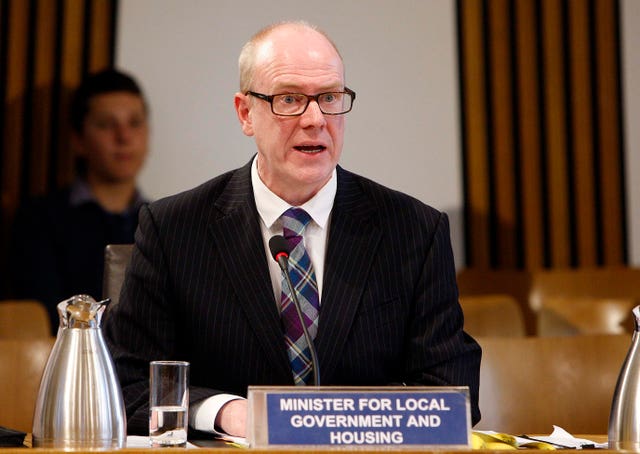
Targets committing the Scottish Government to reduce fuel poverty to below 5% of Scottish households by 2040 have been approved by MSPs.
Holyrood has voted unanimously to pass a Bill to cut the number of households affected by “the blight of fuel poverty” to 15% by 2030 and 5% by 2040.
A new independent watchdog will also be created to monitor progress towards the targets.

Fuel poverty is currently defined as a household spending 10% of its net income on fuel costs after housing, care and childcare costs, but the new proposals will make the link with income even closer.
Speaking during the final stage of the Bill’s progress to become law, Housing Minister Kevin Stewart said: “I believe the Bill is in excellent shape and will help ensure that the blight of fuel poverty is tackled with a seriousness and consistency of effort that it demands.”
Mr Stewart said: “We have established a challenging but – importantly – achievable target to reduce fuel poverty to no more than 5% of households by 2040.
“And we have changed the fuel poverty definition, ensuring a much-closer alignment of fuel-poor with income-poor households.”
He added: “Remote rural and island communities are at the heart of the other major change which we introduced at stage two – that is the uplift to UK minimum income standard for households in these type of area.”
Graham Simpson, the Scottish Conservatives’ housing spokesman, said: “This is a Bill which can change lives.”
He added: “One of the criticisms of the Bill was its target of reducing fuel poverty to 5% within 21 years.
“Some have argued that’s too far in the future but now we’ve amended it with interim targets I think we can be comfortable that at least we have something that’s achievable and that’s important.”
The Bill is “a very different beast now” compared to when it was introduced, he said, joining with the Housing Minister to praise “people co-operating across party lines and coming up with sensible proposals”.
Mr Simpson also welcomed the creation of an independent panel scrutinising the progress of efforts to tackle fuel poverty.
“It will make a significant difference and will keep the focus and scrutiny on meeting – and hopefully exceeding – the targets.”
Scottish Labour’s Alex Rowley struck a less enthusiastic tone, saying his party would be supporting the Bill because “any target is better than no target”, pointing out that previous efforts to eradicate fuel poverty have failed.
“We believe we should – across this chamber – be more ambitious for Scotland to tackle fuel poverty,” he added, criticising the SNP and Tories for voting against Labour’s suggestion of bringing the target forward to 2032.
“If we are to have any chance of tackling fuel poverty within the levers that are within our control then there must be an increase in the levels of funding.”
Scottish Liberal Democrat MSP Liam McArthur said: “The benefits of reducing fuel poverty go far beyond simply removing the need for people to chose between heating and eating,” he said, pointing towards physical and mental health benefits, as well as educational improvements.
Mr McArthur added: “Our ambitions to tackle climate change are also reliant on us making progress on improving energy efficiency in our housing stock.
“For all these reasons, and more, the Bill matters.
“In passing this much improved Bill, however, we will have done only the easy part.
“We now need to make sure that it, and the strategy, make a real difference to individuals, households and communities that have for too long have been blighted by fuel poverty.”


Comments: Our rules
We want our comments to be a lively and valuable part of our community - a place where readers can debate and engage with the most important local issues. The ability to comment on our stories is a privilege, not a right, however, and that privilege may be withdrawn if it is abused or misused.
Please report any comments that break our rules.
Read the rules here